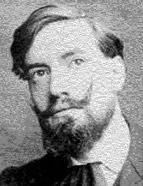

Cortesão agreed with Pedro de Azevedo when stating that the interests of the "merchant class" and those of nobility were ultimately combined in the Ceuta enterprise. But Cortesão, as always, was much bolder and managed to envisage in the taking of the African square the beginnings of a "plan of discoveries, and therefore of wider expansion." Furthermore, he already glimpsed in this "India and its trade as a remote objective." He concluded in exaltation that this was how "an act of national salvation" was accomplished." ("A tomada e ocupação de Ceuta," pp. 26-27) Different stances became reconciled, although the historical characters still stood out in Cortesão’s writings.
Also in 1926, his booklet on the Treaty of Tordesillas (Le Traité de Tordesillas et la découverte de l'Amérique) was published by the Biblioteca Nacional, and the text presenting Portugal at the International Exhibition in Antwerp, a review entitled L'Expansion des Portugais dans l'Histoire de la Civilisation was also dated prior to 1930. In these writings he opens to new developments in the chapters on the history of expansion with which he then began his collaboration in Barcelos' História de Portugal [History of Portugal]. In the same year, the culmination of this initial phase of Cortesão's work was the publication of "Os Factores democráticos na Formação de Portugal"[“Democratic Factors in the Formation of Portugal”], "one of his masterpieces and one of the crowning moments of 20th-century Portuguese historiography" (Vitorino Magalhães Godinho). He had been working on this subject for some time, at least since 1928, on which he had published some reflections in the Seara Nova journal, foretelling the final text. Articles dated Paris, October 20, 1928 ("A formação democrática de Portugal" [“The democratic formation of Portugal”]) and February 1930 ("O problema das relações entre a Geografia e a autonomia política de Portugal” [The problem of the relationship between Geography and the political autonomy of Portugal"]). In these early works he began to assert one of the central problems of his future theory of the discoveries, and also one of the keys to understanding the poet-historian. It was when he stated the following in relation to Duarte Pacheco Pereira's mysterious mission to the western hemisphere in the late 15th century: "all the chroniclers maintain a unique silence." And further ahead: "Today we know that a policy of the strictest secrecy protected national interests from the vast covetousness of outsiders. And it is owing to the secret information that the Italians of Lisbon transmitted to their metropolises that today we are able to piece together, little by little, part of our unknown and immense accomplishments," (A Expedição..., pp. 52 and 137-138).
